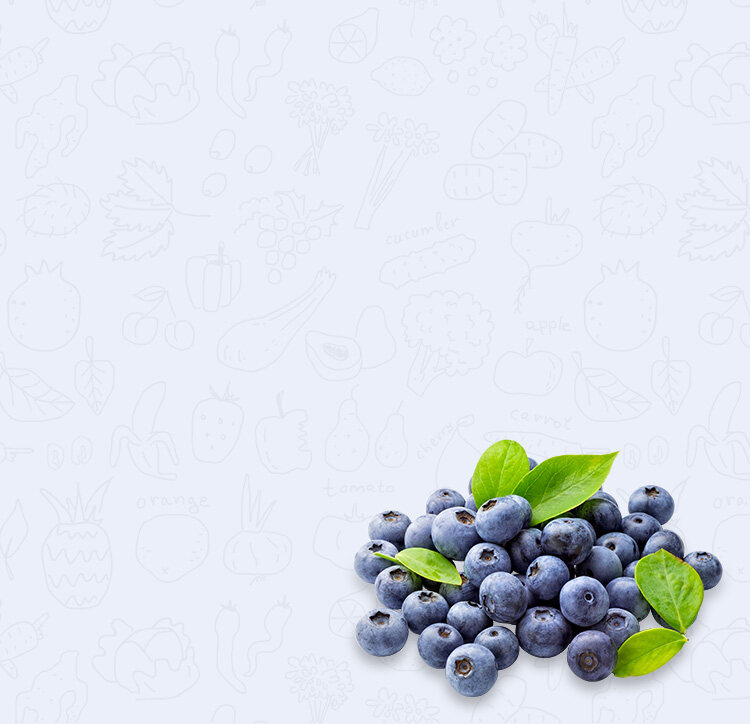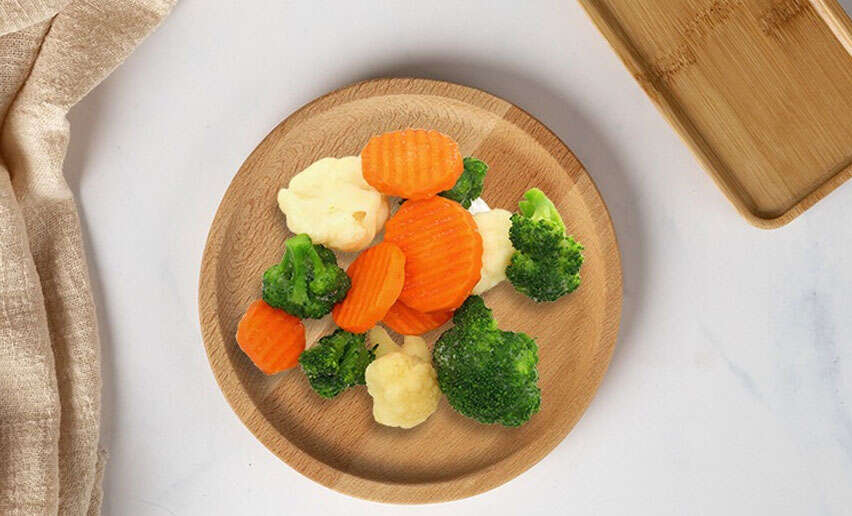2025-03-21 11:39:51
Are Frozen Vegetables Nutritious?
When trying to eat healthily, the ingredients you choose are important. Fresh vegetables are often seen as the best option for nutrition, but what about frozen vegetables? Are they just as nutritious? This is a common question for people who want to eat well but also need convenience. In this blog post, we'll look at how the nutritional value of frozen vegetables compares to fresh ones and clear up some common misunderstandings.
The Nutritional Content of Frozen Vegetables
Preservation Process
The first thing to understand is the process by which vegetables are frozen. Vegetables are typically harvested at peak ripeness, washed, and then blanched (briefly cooked in boiling water) to kill any enzymes that could lead to spoilage. They are then quickly frozen to preserve their freshness and nutritional content. This rapid freezing process helps to lock in nutrients, preventing significant nutrient loss.
Nutrient Retention
One of the main concerns about frozen vegetables is whether they lose nutrients during the freezing process. Research has shown that while some nutrient loss can occur, it is generally minimal. In fact, because frozen vegetables are harvested at peak ripeness, they can sometimes contain more vitamins and minerals than fresh vegetables that have been transported and stored for extended periods.
Comparison with Fresh Vegetables
When comparing the nutritional content of frozen and fresh vegetables, it's important to consider the freshness of the fresh vegetables. Fresh vegetables that have been sitting in a store for weeks may lose a significant amount of their nutritional value through natural degradation. On the other hand, frozen vegetables are typically frozen soon after harvest, preserving most of their nutrients.
Vitamin and Mineral Content
Studies have shown that the vitamin and mineral content of frozen vegetables can be comparable to, or even higher than, that of fresh vegetables. For instance, a study published in the Journal of the Science of Food and Agriculture found that frozen green peas retained as much vitamin C as fresh peas, and in some cases, more.
Antioxidant Levels
Antioxidants are another crucial component of a healthy diet. Some studies suggest that the antioxidant levels in frozen vegetables can be similar to those in fresh vegetables. However, the level of antioxidants can vary depending on the type of vegetable and the specific freezing and storage conditions.
The Benefits of Frozen Vegetables
Convenience
One of the main advantages of frozen vegetables is their convenience. They are readily available year-round, regardless of the season, and require no preparation before cooking. This makes them an excellent option for those with busy lifestyles or limited cooking skills.
Cost-Effectiveness
Frozen vegetables can also be more cost-effective than fresh ones, especially out of season. They often come in larger quantities, which can be more economical when considering the long-term.
Reduced Food Waste
Because frozen vegetables have a longer shelf life, they can help reduce food waste. Unlike fresh vegetables that can spoil quickly, frozen vegetables can be stored for months without losing significant nutritional value.
Consistent Quality
Frozen vegetables offer consistent quality because they are harvested and processed at their peak. This means that every bag of frozen broccoli, for example, will have a similar taste and nutritional profile, unlike fresh broccoli which can vary depending on the season and growing conditions.
The Drawbacks of Frozen Vegetables
Taste and Texture
Some people prefer the taste and texture of fresh vegetables, arguing that frozen ones can be limp or have a slightly different flavor. However, advancements in freezing technology have significantly improved the taste and texture of frozen vegetables, making them nearly indistinguishable from fresh in many cases.
Environmental Considerations
The environmental impact of frozen vegetables can be a concern. The freezing process requires energy, and the packaging can contribute to waste. However, when considering the entire supply chain, including transportation and storage of fresh vegetables, the environmental impact may not be significantly different.
How to Choose and Store Frozen Vegetables
Choosing the Right Frozen Vegetables
When selecting frozen vegetables, look for those that are frozen soon after harvest and have no added sugars, salts, or preservatives. Read the labels carefully to ensure you are getting a product that is as close to fresh as possible in terms of nutrition.
Storage
Proper storage is crucial to maintain the nutritional value of frozen vegetables. Keep them frozen until you are ready to use them, and avoid repeated thawing and freezing, which can degrade the quality and nutritional content.

Conclusion
Frozen vegetables are nutritious and can be a practical part of a healthy diet. They are convenient, often cheaper, and usually have similar nutritional value to fresh vegetables. While there might be minor differences in taste and texture, frozen vegetables still provide essential nutrients. It's important to eat a variety of vegetables, whether fresh or frozen, to get a broad range of nutrients. Next time you're shopping, consider picking up some frozen vegetables—they're a good option for maintaining a balanced diet.



